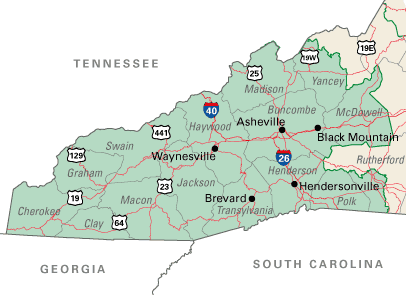A new bill from Rep. Bill Faison (D-Orange, Caswell) would offer one North Carolina county the chance to build its own municipally-owned cable and broadband provider to deliver service to places other providers refuse to go.
H2067, “An Act to Allow Caswell County to Provide Internet Services, An Authorized Purpose Under Cable Television,” would authorize Caswell County to build its own municipal broadband system by adding cable television systems to a list of defined public enterprises. That opens the door to selling bonds to raise private funds for system construction.
Faison told us that a 2005 ruling in the BellSouth (today AT&T) v. Laurinburg case, a state appeals court ruled that communities had the right to build systems to deliver broadband service to their residents. He told IndyWeek there are many areas in his district and beyond that have been bypassed by cable and DSL service providers, with little hope in sight that many of the residents he represents would ever see anything beyond dial-up.
In making his case for the bill, Faison cited as an example electrical co-ops across the state that brought basic utilities services to under-served towns. “High speed internet is just as important today as electricity was in another era as a basic service,” said Faison, a proponent of municipal broadband.
“We need to supply to every one. Where AT&T will go and provide at a reasonable cost, I am happy to let them do it—but where they won’t go, someone must step up and bring that service to those people,” he added.
We had a few moments to talk to Rep. Faison about his bill and its timely introduction during the ongoing heated debate over S1209, a poison pill bill that would stop municipal broadband projects in the state.
He told us Caswell County officials appealed to him as their State Legislator to introduce the bill so they could move forward on their project, and H2067 concisely delivers within the parameters of the 2005 court case.
It will be interesting to watch progress on Faison’s H2067 in contrast to the anti-consumer S1209, introduced by Sen. David Hoyle (D-Gaston). The only downside to Faison’s legislation is that it is limited to Caswell County. But Faison also shows the way forward for other legislators to introduce similar bills to authorize projects in the areas of the state they represent.
For Caswell County residents, it means the potential to finally get quality broadband service after years of broken promises from incumbent providers. Comcast of Danville, Virginia provides limited service, mostly in parts of Yanceyville, the county seat. AT&T offers limited DSL service, but not to several areas of the county. Those unlucky enough to be bypassed still rely mostly on dial-up.
Rep. Faison deserves your support for being a legislator that truly represents his constituents, and his actions illustrate he thinks of them first. Please take a moment to write or call to thank him for his vision on this important issue and his support for getting the job done.
Rep. Bill Faison — [email protected] — (919) 715-3019
[flv]http://www.phillipdampier.com/video/Caswell County.flv[/flv]
Here is a senior citizen and a librarian in Caswell County, trying to live life without acceptable broadband. These are real people with real stories to share. Broadband is not a luxury for these residents. (4 minutes)


 Subscribe
Subscribe






